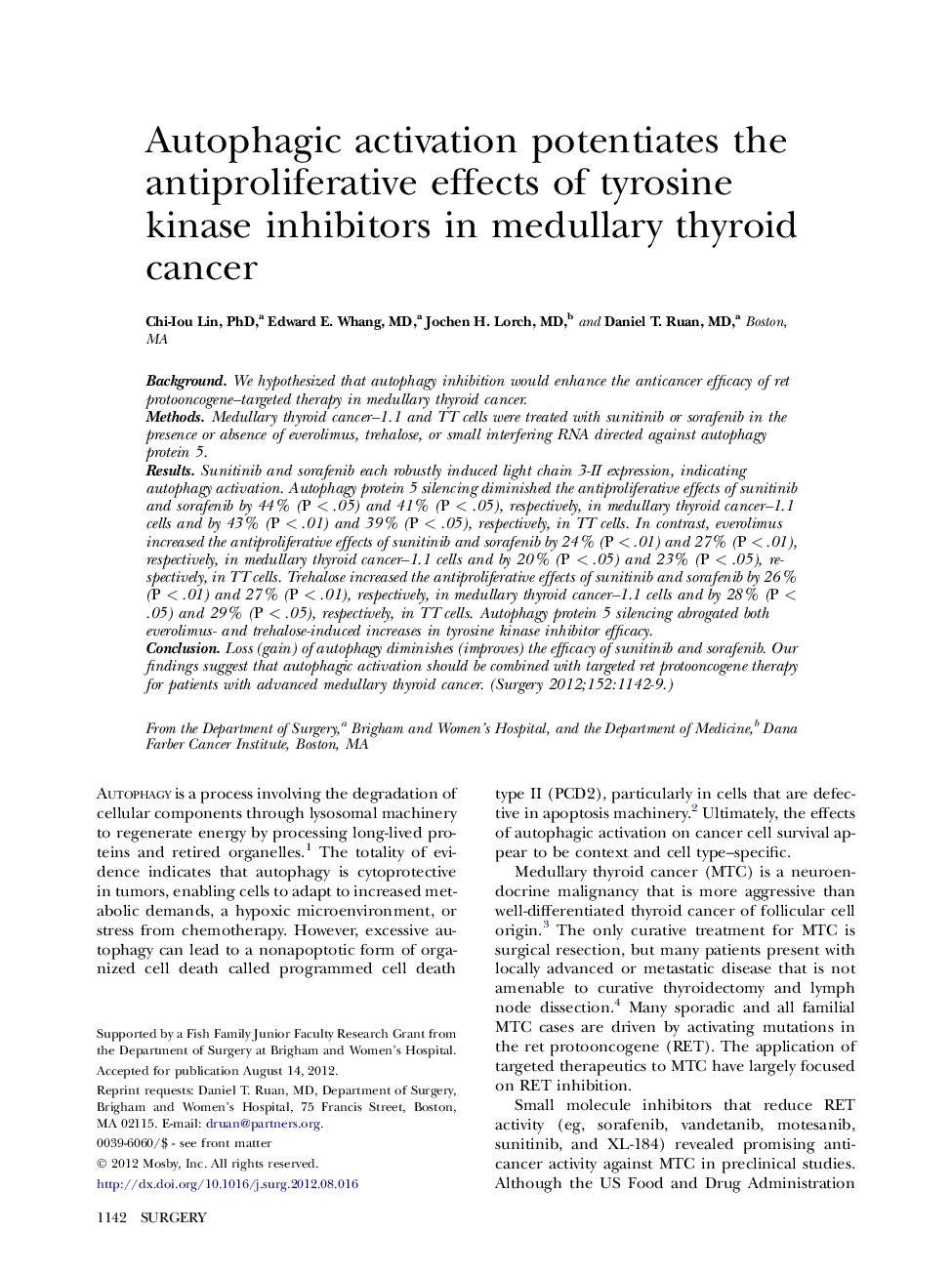| Article ID | Journal | Published Year | Pages | File Type |
|---|---|---|---|---|
| 4307735 | Surgery | 2012 | 8 Pages |
BackgroundWe hypothesized that autophagy inhibition would enhance the anticancer efficacy of ret protooncogene–targeted therapy in medullary thyroid cancer.MethodsMedullary thyroid cancer–1.1 and TT cells were treated with sunitinib or sorafenib in the presence or absence of everolimus, trehalose, or small interfering RNA directed against autophagy protein 5.ResultsSunitinib and sorafenib each robustly induced light chain 3-II expression, indicating autophagy activation. Autophagy protein 5 silencing diminished the antiproliferative effects of sunitinib and sorafenib by 44% (P < .05) and 41% (P < .05), respectively, in medullary thyroid cancer–1.1 cells and by 43% (P < .01) and 39% (P < .05), respectively, in TT cells. In contrast, everolimus increased the antiproliferative effects of sunitinib and sorafenib by 24% (P < .01) and 27% (P < .01), respectively, in medullary thyroid cancer–1.1 cells and by 20% (P < .05) and 23% (P < .05), respectively, in TT cells. Trehalose increased the antiproliferative effects of sunitinib and sorafenib by 26% (P < .01) and 27% (P < .01), respectively, in medullary thyroid cancer–1.1 cells and by 28% (P < .05) and 29% (P < .05), respectively, in TT cells. Autophagy protein 5 silencing abrogated both everolimus- and trehalose-induced increases in tyrosine kinase inhibitor efficacy.ConclusionLoss (gain) of autophagy diminishes (improves) the efficacy of sunitinib and sorafenib. Our findings suggest that autophagic activation should be combined with targeted ret protooncogene therapy for patients with advanced medullary thyroid cancer.
